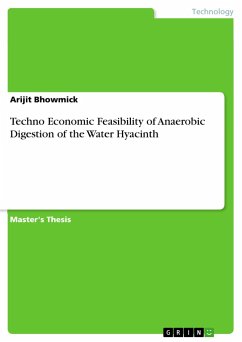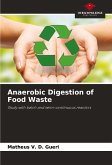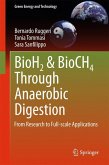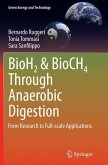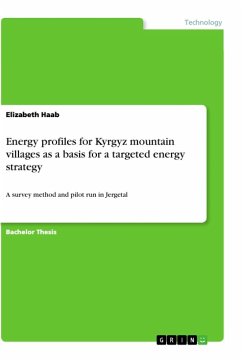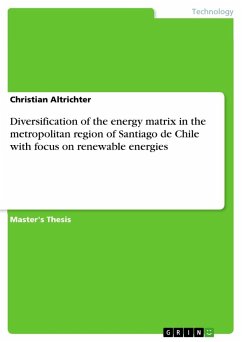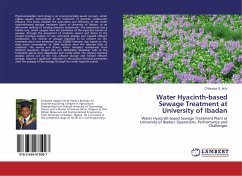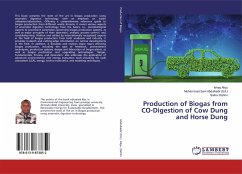Master's Thesis from the year 2015 in the subject Engineering - Power Engineering, University of South Wales, course: Masters in Renewable Energy and Resource Management, language: English, abstract: Reducing our dependence on fossil fuels and minimising the emission of greenhouse gas is the main challenge of the time. Biogas is the one of the fastest growing renewable energy sources in the world and the purpose of the research presented in this thesis is to explore the prospect of techno-economic feasibility of Anaerobic Digestion of water hyacinth. Biogas production could be from various kinds of organic material. However, a substantial share of the biogas potential seems untapped within the agricultural sector like crop residues, weeds and dedicated biogas crops. Water hyacinth can prove to be one such cash crop for biogas or bio-energy as a whole.In addition, the techno-economic performance of water hyacinth seems to be very favourable since the cost of feedstock is almost nil except the cost of harvesting and transportation. To make it more viable, measures like further research in production technique needed to increase methane yield and reduction of the related cost of operation and maintenance. Formulation of proper legislation and incentives from the Government could encourage investors to consider such project for implementation.The findings of the experiment conducted on the samples collected from West Bengal, India are encouraging. The fibre analysis revealed a reasonable quantity of Cellulose, hemicelluloses and lignin. The volatile fatty acid (VFA) predicts a healthy fermentation status. The methane yield is substantial for using water hyacinth as a potential biomass for anaerobic digestion. The chemical oxygen demand (COD), the protein content, the carbohydrate content and pH values are very favourable for anaerobic digestion.From the Net Present value (NPV) and Internal Return ratio (IRR) it can be inferred that with the financial assistance from the Government biogas from water hyacinth could be a feasible project.
Hinweis: Dieser Artikel kann nur an eine deutsche Lieferadresse ausgeliefert werden.
Hinweis: Dieser Artikel kann nur an eine deutsche Lieferadresse ausgeliefert werden.

